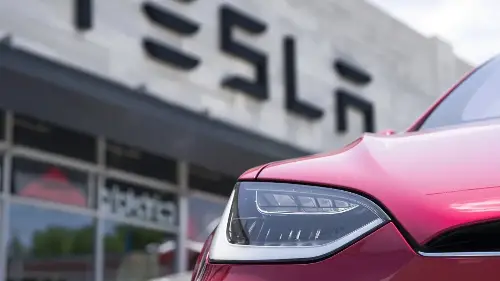
When Tesla unveiled its revamped Model Y compact SUV in January, investors hoped a design overhaul would reignite interest in the marque’s top-selling vehicle, but this has not been the case. Instead, within weeks of launch, the automaker resorted to near-zero percent financing on the new model, a tactic almost unheard of so soon after a model introduction.
In the United States, prospective buyers can secure the refreshed SUV at 1.99% APR or with zero down, while existing Model Y owners are being enticed back with a $2,000 loyalty credit. Across Europe and China, Tesla has gone further -0% interest for two years plus complimentary Supercharger access in some markets, and a five-year 0% loan in China for purchases made before June 30.
Tesla is saddled with abundant inventory amid global sales slump
Despite these deep-pocket incentives, far below the industry’s average new-car APR of 7.1% in the US and 5.5% for dealer-sold EVs, demand has failed to materialize.
“Why would you offer steep discounts and incentives straight out of the gate?” questions Loren McDonald of EV analytics firm Paren.
“That doesn’t add up when margins are already thin; it strongly signals a demand problem.”
– McDonald.
Analysts tracking Tesla’s refreshed Model Y say that such aggressive price promotions so early in a vehicle’s lifecycle almost always point to a struggle to attract buyers.
One of the clearest indications of softer interest is the ready availability of the restyled Model Y. Unlike the drawn-out delivery wait times that plagued the previous generation when the Model Y was the world’s best-selling car; vehicles are now parked on lots and listed in Tesla’s inventory by the thousands.
With ample stock on hand, potential customers are no longer forced to accept multi-month delays, further reducing the urgency to buy.
This surplus coincides with a pronounced slide in regional deliveries. In April, Tesla’s monthly sales in key European markets continued to decline, while China, traditionally its strongest battleground, saw Model Y shipments dip by more than 8% year-over-year, according to the China Passenger Car Association.
After posting its first annual delivery decline in 2024, Tesla tempered CEO Elon Musk’s lofty projection of 30% sales growth for 2025, pledging instead a return to expansion “in the coming quarters.” However, first-quarter deliveries fell 13%, and Wall Street forecasters are bracing for another yearly drop.
While Tesla attributes the sluggish start to necessary retooling at its assembly plants, market observers point to intensified competition from both traditional automakers and agile Chinese EV startups.
The Model Y now faces nearly 30 rivals in the US crossover segment alone, many boasting newer designs and competitive pricing.
“Buyers don’t see the new Model Y as dramatically different,” says Jessica Caldwell of Edmunds.
Record factory ramp-up overshadowed by competition
Amid these headwinds, Tesla is touting a production milestone, its Shanghai Gigafactory went from zero to full capacity on the refreshed Model Y in just six weeks, the fastest rollout in company history.
Assembly of the facelifted five-seater began on February 18, with deliveries commencing eight days later, a feat Tesla credits to its novel “Cybertruck-inspired” light bar design and streamlined manufacturing processes.
Yet even this record-setting efficiency may not be enough to counteract market forces. Chinese rivals have seized on Tesla’s early promotional blitz, offering compelling alternatives at lower price points and leveraging government incentives. Social media chatter and on-the-ground reports suggest some Chinese consumers view the new Model Y’s price cuts as a sign of desperation rather than value.
The Shanghai plant’s achievement underscores Tesla’s manufacturing prowess, its North American facilities are slated to eventually produce a Cybercab robotaxi every five seconds, but brand perception challenges exist.
Musk’s political activism, including support for far-right causes in Europe and alignment with controversial US policies, have reportedly alienated segments of Tesla’s core customer base, prompting record trade-in inquiries.
While Musk insists broader economic headwinds are the primary drag on demand, CFO Vaibhav Taneja acknowledged “unwanted hostility” toward the brand has had an impact in certain markets.
Your crypto news deserves attention - KEY Difference Wire puts you on 250+ top sites
